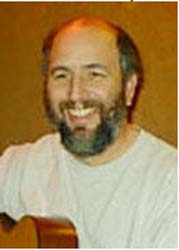I cry often. When I hear the news of a joyful event, or a sad one, tears often run just ahead of thought. I am lucky, I think, to have such unabashed standard bearers for my heart. Brave messengers, they have not always been at my disposal. I had to learn – no, unlearn… I had to burn the thousands of brochures life handed me, the ones urging me to evade the wet treachery of the eyes, which, left unrestrained, will reveal the shameful secret that I am feeling something. I have paid dearly for this unlearning, and part of the price was my involuntary connection to the tragedy come to be called “Jonestown.”
In November 1978, when my friend Annie Moore died there, I was already a father. This fact perhaps strengthened my emotional link to Barbara and John, Annie’s parents. I don’t really know. But when I think of the sermon John Moore delivered immediately after learning that he had lost two daughters and his grandson, I am dumbfounded. Here was a man facing the most profound tragedy imaginable, and yet it’s as if he were listening to my anguish, dreads, and hopes as clearly as his own (although it would be years before we would speak of them). His poignant words addressed the lessons to be learned from Jonestown, the need to keep our hearts and heads clear and open, and the things that joined us with – as well as separated us from – those who died there. When I read them even now, I weep and weep.
As I have grown older, I have come to believe that the strand pulling tears from my eyes is most important to our survival as a species. I feel its tug in those moments when I experience our connections: watching the light go on in someone’s eyes as they grasp their vulnerability or fallibility; seeing anger and alienation melt into compassion when the common bond is suddenly realized; witnessing – and feeling – another’s joy or grief; and seeing birth or death. I don’t believe mass movements can bring salvation to us. Au contraire, it seems that mass movements rely more on complicity than commitment, and as such are more useful for destruction than anything else. It is in the extraordinary acts of individuals, in those moments of connection, that I place my hope. The bystanders joining together to stand up against an assailant; the poor homeless man offering his sleeve to the crying rich person; the Jew helping the Muslim to his feet to escape the debris falling from the Twin Towers. These are the believers who inspire me.
As John Moore seemed to have, I immediately recognized the powerful force of denial that would move people to embellish the distance between themselves and the “kooks” at Jonestown. Yet how could they learn from this tragedy? One piece of the picture stood in denial’s path for me: I knew Annie Moore. She was nothing if not sane. I could not help but identify with her, to admire her, to believe in her motives. So I was forced to look deeper than “kook.” It took awhile, but the tears came, and like gentle waves they washed away my fear of the unanswered questions. In its place was an unshakeable yearning to help the world know the real Annie Moore.
Music holds a privileged place in many people’s existence. With or without the aid of words, a song can sometimes burrow past the walls of propriety and allow the listener to just feel something that they may not even understand. When writing “The Unanswered Question,” I hoped to exploit that inroad and bring to the listener the connective thread I felt with Annie. I treasured every tear the song could elicit. I understand it was pretty effective.
But I see now that it falls short of my hopes. It sometimes fails to reach those not already familiar with and/or attached to Peoples Temple’s story. But the lessons of Jonestown are important and universal, in some ways more now than in 1978. Someday not long from now, most of those directly affected by Peoples Temple will be gone. As did Annie, I want to leave something behind for the others.
On the eve of recording the album containing it, I have had to ponder this shortfall, and have decided that it must be rewritten somewhat. I want the uninitiated to understand the events unfolding in the song. And to feel that strand of the web that attaches me to Annie, they must feel it through the strand that connects them to me. I don’t know the changes exactly, but most of them will be lyrical. Probably a name change: “The Ballad of Annie Moore,” I think. It seems strange to change a song I’ve come to love and find comfort in singing, but it feels true. This, after all, is my greed: I crave the salt left on the cheeks of those – all of those – who hear the song. My tears are not enough.
(Ken Risling is a songwriter whose tribute to Annie Moore – the song “Jonestown” – appears here and here. His collected writings for the jonestown report are here. He can be contacted at rise@sonic.net.)
